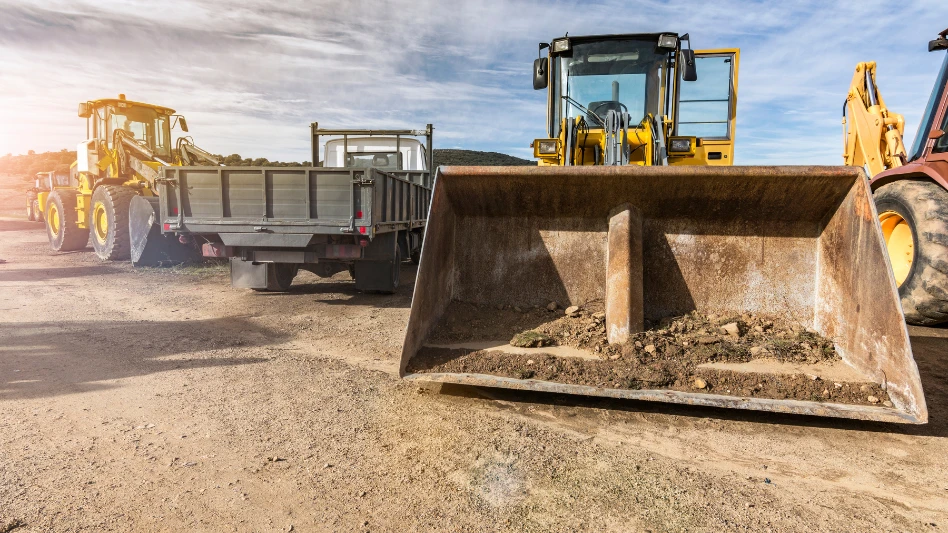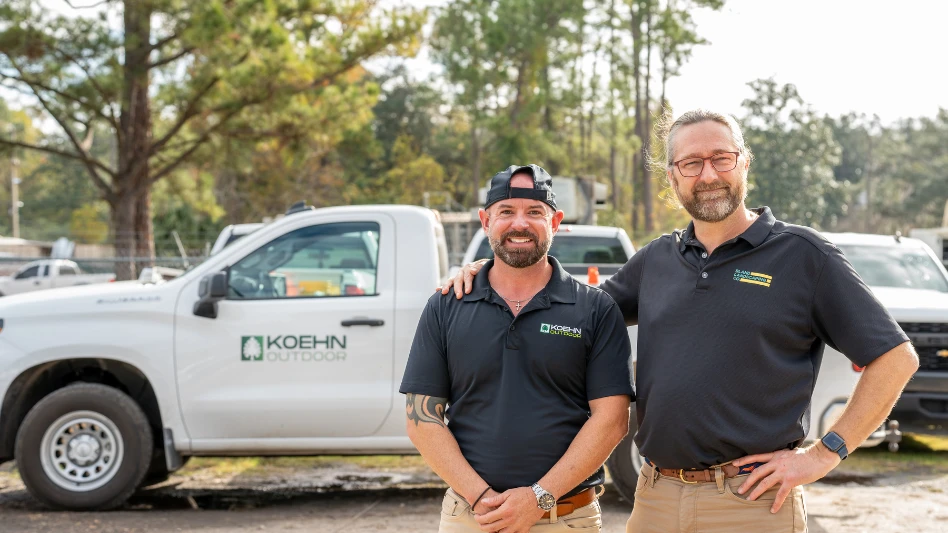 University of Maryland junior Chad Stern relies on employees for 100 percent of the production of his company Mowing & More.
University of Maryland junior Chad Stern relies on employees for 100 percent of the production of his company Mowing & More.
Photos by Mike MorganWhen Chad Stern was ready to hire the first employee for his landscape business, Mowing & More, he didn’t bother hanging signs in the school lunchroom or recruiting friends. “I went to a private school where most of the kids probably weren’t interested in doing manual labor,” he says.
Stern, however, knew he wanted to develop a career in the industry from the time he began mowing lawns when he was 12 years old. But he needed help.
Anticipating spring and more work than he could handle, Stern was in the market for a full-time employee he could trust to manage 100 percent of the field work. By this time, he was in ninth grade and sales were growing in $60,000 to $80,000 increments each year.
Then, in the winter of 2003, a roofing contractor at his parent’s house was braving frigid temperatures to finish the job. Stern took note. “It was January and about 15 degrees, and I thought the fact that he was out there working was a reflection of his work ethic,” Stern says.
Stern asked the roofer if he had relatives looking for work. Stern also called a couple of business owners featured in Lawn & Landscape to ask their advice on hiring. He was prepared to manage payroll when he brought on the roofer’s brother.
Today, Stern has six employees and is a junior at the University of Maryland. His shop is close to campus, but he still relies on employees for 100 percent of production. And he still recruits workers by keeping jobs “in the family” of those who are already employed by Mowing & More.
“I feel like there is better retention when new employees are working with people they already know instead of with complete strangers,” says Stern, adding that hiring family of employees also lessens the burden of training. “It’s up to the field employees to make the new workers feel comfortable and welcome,” he says.
Because Stern spends all day in class, trust is a huge hiring factor. He dispatches his three two-man crews in the morning and checks in with them late afternoon to be sure the day’s production tasks are handled. “I focus on doing sales estimates, quality control and equipment maintenance,” Stern says. His employees are “enthusiastic to show up,” he adds. Attendance and quality are not a problem.

But Stern also knows he can’t micromanage his workers. “I have always depended on my employees to be honest and responsible because I can’t be standing there,” he says.
The one lesson Stern learned the hard way was to sell enough work to support each hiring decision. He recruited an employee who lasted two weeks the summer of 2002. “I realized I didn’t have enough work to give him,” he says.
Now Stern knows his numbers. Each employee can handle $60,000 to $80,000 in revenue. Figuring steady growth – last year the business was up 19 percent – Stern aims to hire one new person each year.
Those hard-working employees stick around because Stern returns the favor. “I work as hard for my employees as they do for me,” he says, relating that he may help them by fixing a piece of equipment. “I personally help them out and I know they appreciate that and it means a lot to them.”
The author is a freelance writer based in Bay Village, Ohio.
Jump To:
Introduction
Medium Business - $500,000 to $2 million
Large Business - More than $2 million

Explore the July 2009 Issue
Check out more from this issue and find your next story to read.
Latest from Lawn & Landscape
- Analysis of an entrepreneur
- Terra Nova's Sedum Conga Line variety wins Best of 2024 Perennial award
- Different ways to distribute
- Case's 580EV electric backhoe loader wins Good Design Award
- Davey Tree promotes Dan Herms to VP, GM of Davey Institute
- Caterpillar's Cheryl H. Johnson set for April retirement
- Registration open for sixth annual Lawn & Landscape Technology Conference
- 12 interview questions to help you hire winners





